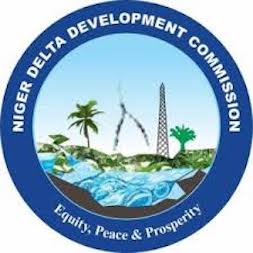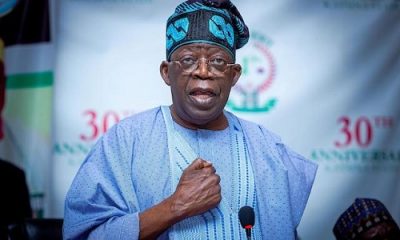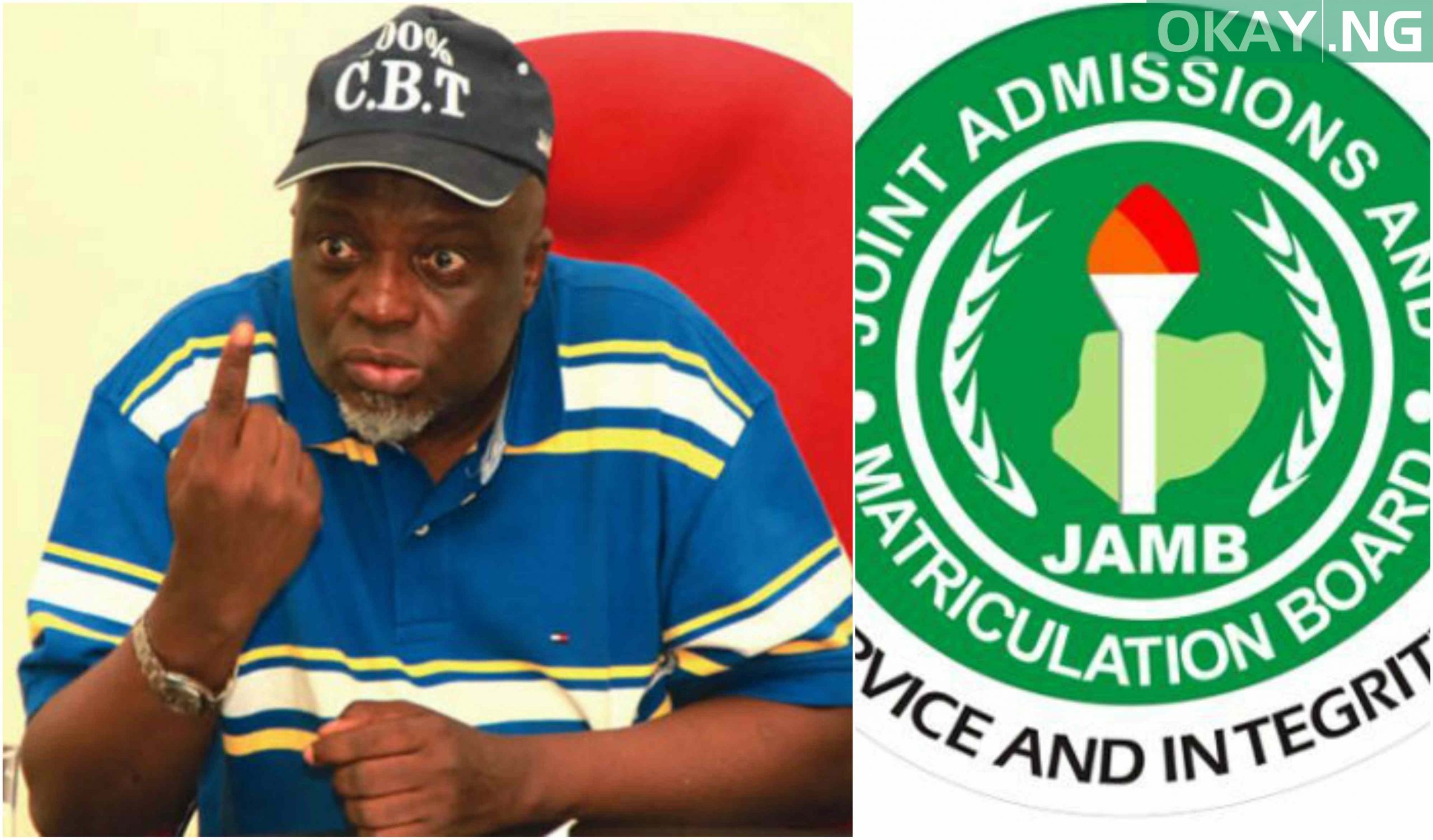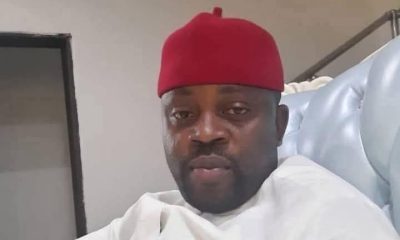FEATURES
IBB at 82: What Would IBB Have Done?

By Chidi Amuta
Today, former military president, General Ibrahim Babangida, turns 82. It has become my annual personal tradition to use the opportunity of his birthday each year to highlight the perennial relevance of the policies, ideas and practices that he emplaced over three decades ago to our preset circumstances.
Each time we are confronted with a major national challenge, the question that has come to my mind has always been: What would IBB have done? I raise the same rhetorical question today in the light of the issues that confront our new administration.The Niger Coup and ECOWAS
Perhaps the most burning issue today the coup in Niger Republic and the spotlight on Nigeria’s leadership responsibility as a force of stabilization in the West African sub region. As IBB observes his birthday today, it might be helpful for our younger generation and the political leadership of today to have an insight into how IBB used the projection of Nigeria’s power to stabilize war torn Liberia and later Sierra Leone.
Of course the circumstances were somewhat different. Nigeria was under military rule transiting to democracy. But our leadership place in West Africa and indeed the entire continent was not in question. The strength of our military was in tact just a sour commitment to political stability and democratization were all values deserving external projection.
Babangida’s grand vision of Nigeria saw a bolder more assertive and even regionally powerful Nigeria. With Prof. Bolaji Akinyemi as Foreign Minister, Babangida pursued the kind of bold and activist foreign policy that only befits an ambitious regional power. He was not shy to project Nigeria’s power in the West African sub region hence his direct military intervention in the civil wars in both Liberia and Sierra Leone. He saw the civil wars in both countries as direct threats to the security of West Africa. His friend, Ghanaian head of state, Jerry Rawlings. shared his commitment. They did not wait for endless summits or convoluted resolutions. They led the charge. Others followed. ECOMOG was born.
In August 1990, a contingent of the Nigerian military landed at the port of Monrovia to commence what became the ECOMOG operation. As the vessels approached Monrovia, the transmission station of “Radio Freedom” which was onboard came alive with messages of hope beamed to the Liberian people. The Nigerian force was supported by a small Ghanaian contingent, which was allowed to provide the founding force Commander of ECOMOG ,General Arnold Quainoo.
ECOMOG succeeded in separating the warring factions. It later graduated into an ECOWAS wide intervention initiative which stabilized the situation in Liberia. In subsequent years, ECOMOG expanded into troubled Sierra Leone with the stationing of an air base with a squadron of Nigerian Alpha jets. That neutralized the rebels in rural Sierra Leone. Through Nigeria’s leadership, ECOMOG became an African model in the use of national power to stabilize a region. The OAU and the UN later supported the initiative into a multilateral initiative.
Choosing a Cabinet
As the nation awaits the swearing in of President Bola Tinubu’s cabinet, national discourse has concentrated on the quality of most of the nominees. In a nation that boasts of some of the most outstanding technocrats and intellectuals in diverse fields, the mediocrity of the Tinubu selection has embarrassed many. There may be no basis for measuring Tinubu’s choices against those of Babangida over thirty years ago.
Tinubu is a partisan politician. He has political debts to pay. He has to contend with a constitution that requires that each state be represented by one minister at least. He also has to rule over a nation that has literally been overrun by a degraded value system. On the contrary, IBB headed a military regime with no parliament to please. Meritocracy and the national interest were the abiding considerations. Political charlatanry was not in the picture.
IBB was an enlightened and ideas-driven president. His constant companions were mostly from among the nation’s outstanding men and women of ideas. He constantly sought the diverse views and perspectives of intellectuals. He recruited them to work with him as ministers, advisers, heads of specialized agencies and friends. To date, the Babangida administration featured the largest collection of people of ideas in government. Just a sampling:
- Olikoye Ransome Kuti- Health
- Bolaji Akinyemi – External Affairs
- Babs Fafunwa – Education
- Jibril Aminu – Petroleum Resources/Education
- Tam David West – Petroleum Resources
- Kalu Idika Kalu – Finance
- Chu S. P Okongwu- National Planning/Finance
- Gordian Ezekwe – Science and Technology
- Emmanuel Emovon – Science and Technology
- Sam Oyovbaire – Information
- Wole Soyinka – Federal Road Safety Corps
- Eme Awa/Prof. Humphrey Nwosu – National Electoral Commission
- Ojetunji Aboyade- Economic Reform Adviser
- Tunji Olagunju – Political Adviser
- Ikenna Nzimiro- Adviser
- Akin Mabogunje – Adviser
- Isawa Elaigwu – Adviser
- Chief Michael Omolayole –Adviser
Fighting Inequality
Another matter of present national interest is the viral spread of multi dimensional poverty. Nigeria has in the last decade become the world’s poverty capital with an estimated population of 130 million poor people.
For Babangida, the main thrust of economic reform was the migration of Nigeria from a mixed economy to a free market format. He recognized that poverty and inequality would increase. His quest for a new social order involved a deliberate policy of poverty mitigation.
General Babangida believed that it was the responsibility of a compassionate government to give capitalism a human face by mitigating the alienating effects of market competition hence the efforts to ameliorate the harsh effects of the Structural Adjustment Programme (SAP). The result was easily our most systematic and well thought out poverty alleviation programme to date containing:
- The Directorate for Food, Roads and Rural Infrastructure (DFRRI)
- The Peoples Bank
- Community Banks
- National Directorate of Employment
- The National Economic Recovery Fund (NERFUND)
- The Mass Transit Programme
Institution Building
It has been said in recent times that a major part of Africa’s development has been the preponderance of strong man and a lack of strong institutions. Central to Babangida’s grand vision and its enabling strategy was the creation of strong national institutions. In the domestic sphere, Babangida was obsessed with the establishment of a robust institutional framework for nation building. In the entire history of post -colonial Nigeria, the Babangida administration is on record for establishing the highest number of national institutions in major areas of national life. Most of these institutions have endured to the present including:
- Corporate Affairs Commission -CAC(1990),
- National Communications Commission-NCC(1992),
- National Deposit Insurance Corporation-NDIC(1988),
- National Broadcasting Commission-NBC(1992),
- National Electoral Commission
- Technical Committee on Privatization and Commercialization(TCPC) which became the BPE-(1988).
- The National Drug Law Enforcement Agency (1989)
- The Federal Road Safety Corps (FRSC) –(1988).
- Technical Aid Corps (1987)
- National Agency For Food and Drug Administration NAFDAC (1993)
- National Women’s Commission (1992)
Accordingly, Babangida reorganized the Nigeria Police into the present zonal command structure. Similarly, the architecture of national intelligence and security was reorganized from the former monolithic National Security Organization(NSO) to the present three branch structure of:
- The State Security Service(SSS), now DSS
- National Intelligence Agency(NIA) and
- Defense Intelligence Agency(DIA).
Insecurity and the National Guard Idea
Our insecurity remains almost intractable. Up to the time he left office, Babangida was never in any doubt about the unsettled nature of inter-ethnic relations among Nigerian groups. It was his conviction that our federation was still unsettled, with many real and potential flash points. He believed that the present and future nature of our internal security challenges would overwhelm the police and distract the professional military.
Accordingly, he believed that the police is too mild and civil to contain armed insurgency while the military is too fierce to be pressed into combatting fellow Nigerians with its doctrine of terminal precision. The solution was to establish a mid intensity intermediate force- the National Guard- based in the states and specially trained and indoctrinated to manage internal security with a mixture of resolute force and patriotic compassion. The National Guard was shot down by political hawks.
Today is a new day. IBB is 82. He left office over 30 years ago. As in previous years, it is my pleasure to join his other friends and family to celebrate a true friend and a truly outstanding nation builder and timeless patriot.
z
Today, former military president, General Ibrahim Babangida, turns 82. It has become my annual personal tradition to use the opportunity of his birthday each year to highlight the perennial relevance of the policies, ideas and practices that he emplaced over three decades ago to our preset circumstances. Each time we are confronted with a major national challenge, the question that has come to my mind has always been: What would IBB have done? I raise the same rhetorical question today in the light of the issues that confront our new administration.
The Niger Coup and ECOWAS
Perhaps the most burning issue today the coup in Niger Republic and the spotlight on Nigeria’s leadership responsibility as a force of stabilization in the West African sub region. As IBB observes his birthday today, it might be helpful for our younger generation and the political leadership of today to have an insight into how IBB used the projection of Nigeria’s power to stabilize war torn Liberia and later Sierra Leone.
Of course the circumstances were somewhat different. Nigeria was under military rule transiting to democracy. But our leadership place in West Africa and indeed the entire continent was not in question. The strength of our military was in tact just a sour commitment to political stability and democratization were all values deserving external projection.
Babangida’s grand vision of Nigeria saw a bolder more assertive and even regionally powerful Nigeria. With Prof. Bolaji Akinyemi as Foreign Minister, Babangida pursued the kind of bold and activist foreign policy that only befits an ambitious regional power. He was not shy to project Nigeria’s power in the West African sub region hence his direct military intervention in the civil wars in both Liberia and Sierra Leone. He saw the civil wars in both countries as direct threats to the security of West Africa. His friend, Ghanaian head of state, Jerry Rawlings. shared his commitment. They did not wait for endless summits or convoluted resolutions. They led the charge. Others followed. ECOMOG was born.
In August 1990, a contingent of the Nigerian military landed at the port of Monrovia to commence what became the ECOMOG operation. As the vessels approached Monrovia, the transmission station of “Radio Freedom” which was onboard came alive with messages of hope beamed to the Liberian people. The Nigerian force was supported by a small Ghanaian contingent, which was allowed to provide the founding force Commander of ECOMOG ,General Arnold Quainoo.
ECOMOG succeeded in separating the warring factions. It later graduated into an ECOWAS wide intervention initiative which stabilized the situation in Liberia. In subsequent years, ECOMOG expanded into troubled Sierra Leone with the stationing of an air base with a squadron of Nigerian Alpha jets. That neutralized the rebels in rural Sierra Leone. Through Nigeria’s leadership, ECOMOG became an African model in the use of national power to stabilize a region. The OAU and the UN later supported the initiative into a multilateral initiative.
Choosing a Cabinet
As the nation awaits the swearing in of President Bola Tinubu’s cabinet, national discourse has concentrated on the quality of most of the nominees. In a nation that boasts of some of the most outstanding technocrats and intellectuals in diverse fields, the mediocrity of the Tinubu selection has embarrassed many. There may be no basis for measuring Tinubu’s choices against those of Babangida over thirty years ago.
Tinubu is a partisan politician. He has political debts to pay. He has to contend with a constitution that requires that each state be represented by one minister at least. He also has to rule over a nation that has literally been overrun by a degraded value system. On the contrary, IBB headed a military regime with no parliament to please. Meritocracy and the national interest were the abiding considerations. Political charlatanry was not in the picture.
IBB was an enlightened and ideas-driven president. His constant companions were mostly from among the nation’s outstanding men and women of ideas. He constantly sought the diverse views and perspectives of intellectuals. He recruited them to work with him as ministers, advisers, heads of specialized agencies and friends. To date, the Babangida administration featured the largest collection of people of ideas in government. Just a sampling:
- Olikoye Ransome Kuti- Health
- Bolaji Akinyemi – External Affairs
- Babs Fafunwa – Education
- Jibril Aminu – Petroleum Resources/Education
- Tam David West – Petroleum Resources
- Kalu Idika Kalu – Finance
- Chu S. P Okongwu- National Planning/Finance
- Gordian Ezekwe – Science and Technology
- Emmanuel Emovon – Science and Technology
- Sam Oyovbaire – Information
- Wole Soyinka – Federal Road Safety Corps
- Eme Awa/Prof. Humphrey Nwosu – National Electoral Commission
- Ojetunji Aboyade- Economic Reform Adviser
- Tunji Olagunju – Political Adviser
- Ikenna Nzimiro- Adviser
- Akin Mabogunje – Adviser
- Isawa Elaigwu – Adviser
- Chief Michael Omolayole –Adviser
Fighting Inequality
Another matter of present national interest is the viral spread of multi dimensional poverty. Nigeria has in the last decade become the world’s poverty capital with an estimated population of 130 million poor people.
For Babangida, the main thrust of economic reform was the migration of Nigeria from a mixed economy to a free market format. He recognized that poverty and inequality would increase. His quest for a new social order involved a deliberate policy of poverty mitigation.
General Babangida believed that it was the responsibility of a compassionate government to give capitalism a human face by mitigating the alienating effects of market competition hence the efforts to ameliorate the harsh effects of the Structural Adjustment Programme (SAP). The result was easily our most systematic and well thought out poverty alleviation programme to date containing:
- The Directorate for Food, Roads and Rural Infrastructure (DFRRI)
- The Peoples Bank
- Community Banks
- National Directorate of Employment
- The National Economic Recovery Fund (NERFUND)
- The Mass Transit Programme
Institution Building
It has been said in recent times that a major part of Africa’s development has been the preponderance of strong man and a lack of strong institutions. Central to Babangida’s grand vision and its enabling strategy was the creation of strong national institutions. In the domestic sphere, Babangida was obsessed with the establishment of a robust institutional framework for nation building. In the entire history of post -colonial Nigeria, the Babangida administration is on record for establishing the highest number of national institutions in major areas of national life. Most of these institutions have endured to the present including:
- Corporate Affairs Commission -CAC(1990),
- National Communications Commission-NCC(1992),
- National Deposit Insurance Corporation-NDIC(1988),
- National Broadcasting Commission-NBC(1992),
- National Electoral Commission
- Technical Committee on Privatization and Commercialization(TCPC) which became the BPE-(1988).
- The National Drug Law Enforcement Agency (1989)
- The Federal Road Safety Corps (FRSC) –(1988).
- Technical Aid Corps (1987)
- National Agency For Food and Drug Administration NAFDAC (1993)
- National Women’s Commission (1992)
Accordingly, Babangida reorganized the Nigeria Police into the present zonal command structure. Similarly, the architecture of national intelligence and security was reorganized from the former monolithic National Security Organization(NSO) to the present three branch structure of:
- The State Security Service(SSS), now DSS
- National Intelligence Agency(NIA) and
- Defense Intelligence Agency(DIA).
Insecurity and the National Guard Idea
Our insecurity remains almost intractable. Up to the time he left office, Babangida was never in any doubt about the unsettled nature of inter-ethnic relations among Nigerian groups. It was his conviction that our federation was still unsettled, with many real and potential flash points. He believed that the present and future nature of our internal security challenges would overwhelm the police and distract the professional military.
Accordingly, he believed that the police is too mild and civil to contain armed insurgency while the military is too fierce to be pressed into combatting fellow Nigerians with its doctrine of terminal precision. The solution was to establish a mid intensity intermediate force- the National Guard- based in the states and specially trained and indoctrinated to manage internal security with a mixture of resolute force and patriotic compassion. The National Guard was shot down by political hawks.
Today is a new day. IBB is 82. He left office over 30 years ago. As in previous years, it is my pleasure to join his other friends and family to celebrate a true friend and a truly outstanding nation builder and timeless patriot.
FEATURES
Miss Valdeen N. Pierre Honored with Humanitarian Award at the 2025 National Humanitarian Summit
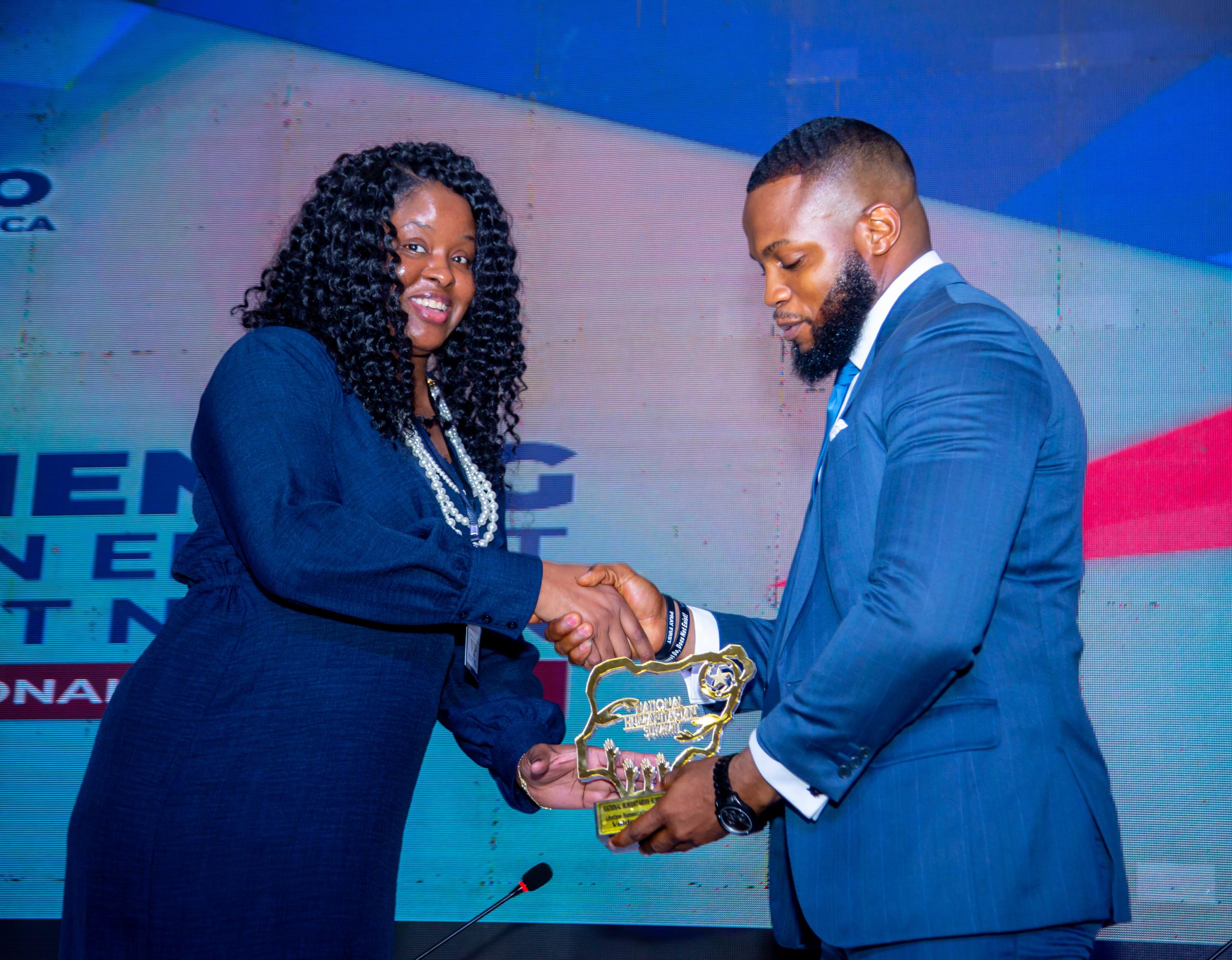
In a remarkable celebration of humanitarian service and strategic collaboration, Miss Valdeen Pierre , Country Director – United State ; A New Thing International foundation ; was honored with the Humanitarian Award at the prestigious National Humanitarian Summit 2025, held at the Shehu Musa Yar’Adua Centre, Abuja.
The award recognizes Miss Pierre’s and other humanitarian leaders unwavering commitment to humanitarian causes, particularly her collaboration with A New Thing International Foundation on the SOBE Project (School Outreach for Better Education) across Sokoto, Kebbi, Plateau, Niger States and the FCT.
Her efforts have significantly contributed to improving access to quality education and raising awareness about social vices among schoolchildren in underserved regions.The summit drew an esteemed audience comprising multiple stakeholders across the humanitarian value chain, including the Minister of Youth Development, Minister of Humanitarian Affairs, Special Assistant to the President on Humanitarian Affairs, the First Lady of Kwara State, First Lady of Zamfara State, representatives of United Nations Humanitarian Agencies, NGOs, INGOs, and other key players in the humanitarian sector.
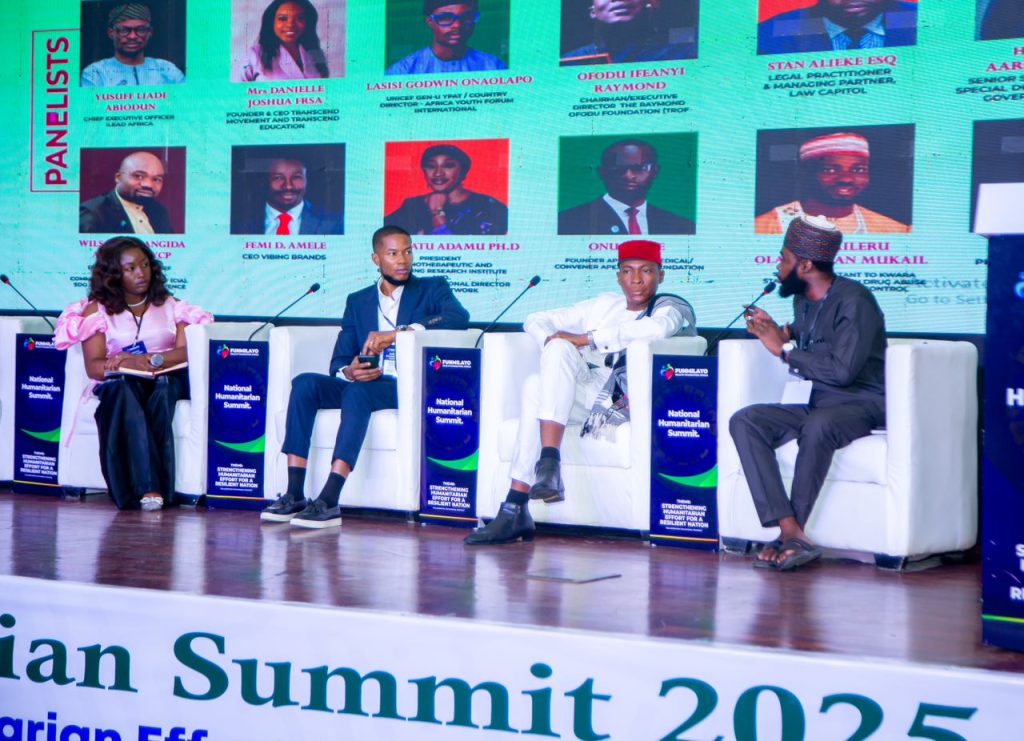
The event featured a vibrant mix of panel discussions, keynote addresses, and the unveiling of strategic development plans aimed at strengthening collaborative impact across Nigeria and beyond.
In his vote of thanks, Ambassador Kenneth Anetor, the Executive Director of A New Thing International Foundation and Chairman of the Planning Committee, delivered a passionate closing speech. He commended the honorees and stakeholders, issuing a clarion call for deeper collaboration and renewed commitment to advancing strategic organizational development goals. His rousing remarks inspired attendees to rise to the moment and forge stronger partnerships for sustainable impact.
Ambassador Anetor also extended profound appreciation to the summit’s convener, Ambassador Michael Timothy, of the Funmilayo Health Foundation Africa, for the opportunity to serve as Chairman of the Planning Committee, and for creating a platform that celebrates excellence in service and drives transformative conversations in humanitarian work.
The National Humanitarian Summit 2025 stands as a milestone in Nigeria’s journey toward inclusive, people-centered development, with Miss Valdeen Pierre’s recognition serving as a beacon of hope and an example of the power of global partnership in humanitarian efforts.
For media inquiries , information, or donations please contact:
Email: anewthingworldwide@gmail.com
Phone: +2347037474611
Website: www.antworldwide@gmail.com
FEATURES
A Pope’s Funeral and New Leadership Paradigm
By Dakuku Peterside
The world came together on a warm April morning in Rome. Under Bernini’s wide colonnade, a simple wooden coffin lay, almost shy against the grand marble of St Peter’s. It held the body of Jorge Mario Bergoglio, better known as Pope Francis; it also carried a final message, passed without words.
As I watched the funeral, I wondered if the message would be clear to leaders in places where leadership is often about show, instead of service. Nigeria, my country, came to mind, because its people long for leaders who serve with humility, rather than rule with power.At first glance, comparing a Pope to political leaders might seem unconventional, but important commonalities exist. Upon reflection, parallels are audacious: a Catholic pontiff and a republic’s president inhabit very different orbits. Yet, both preside over institutions that store immeasurable wealth – monetary, cultural, spiritual – and both command loyalties that can bless or wound the human spirit. The difference lies in the currency they spend. Francis traded almost exclusively in moral capital. His motorcade rarely stretched beyond a small Fiat. He lived in a guesthouse, took meals in a communal dining hall, and instructed that his funeral expenses be redirected to shelters for people experiencing homelessness.In stark contrast, many political leaders, notably in Nigeria, have consolidated power through patronage, wealth accumulation, and coercion, severely damaging their credibility and the public’s trust. Nigerian power, by contrast, is often measured in sirens, convoys, and security votes; in the distance a public office holder can place between himself and the exhaust of everyday life. The funeral invited a radical thought: What if legitimacy flowed from humility, not from the choreography of importance? This stress on the importance of humility in leadership could enlighten and provoke reflection on governance.Humility, though, is not a mannerism. It is a decision made daily, a refusal to situate oneself above the collective story. Francis’ last request, “bury me outside the Vatican walls”, was a slight tectonic shift, the first such break with tradition in over a century. It told pilgrims and presidents alike that holiness is not the property of marble tombs but of living deeds. Pope Francis was buried in a simple wooden coffin, instead of the traditional three-nested casket, symbolising a life dedicated to humility and service. This act is probably the first of its kind in papal history. This powerful statement of reform and decentralisation challenged entrenched traditions that maintain privilege.Nigerian leaders, accustomed to the trappings of power and privilege, could profoundly benefit from embracing servant-leadership that prioritises citizens’ welfare above personal gain. Imagine for a moment a Nigerian governor choosing to sleep occasionally in the wards of a rural clinic that lacks electricity, a senator commuting without escorts, or a budget speech opened with an apology to those whose dreams are still postponed. Such gestures, inspired by Pope Francis’ humility, would earn ridicule from cynics trained by years of theatrical piety, yet they might also crack the granite of distrust that politics has laid around the citizen’s heart.Throughout his papacy, Francis consistently demonstrated simplicity, living modestly, rejecting extravagance, and continuously expressing empathy for ordinary people. For Nigerian political leaders, adopting similar modesty could substantially enhance their legitimacy, distancing them from the extravagant lifestyles that alienate them from the realities of the people they govern. By following PopeFrancis’ example, Nigerian leaders could bridge the gap between themselves and the citizens they serve, fostering a deeper connection and understanding.The scenes in Rome offered other lessons as subtle as incense. Refugees and cardinals knelt side by side; presidents exchanged the sign of peace; atheists joined murmured prayers. I thought of the Plateau and Benue, of plains made fertile by rivers and yet stained by cycles of reprisal killings, each side armed with grievances as old as maps. If a Pope’s funeral could fold the devout and the doubtful into the same silence, perhaps state ceremonies in Nigeria could be reimagined as platforms for reconciliation, rather than patronage. Symbols matter because they reach the imagination before the policy can touch the pocket. A wooden coffin whispered more convincingly than any communiqué on inclusive governance ever could.None of this is to canonise a man in hindsight; Francis was criticised, resisted, and sometimes misunderstood. Reform always bruises the edges of comfort. But in death, he achieved what many living leaders rarely managed: he convinced opposing camps to pause their quarrels long enough to say, “Thank you, Father.” The applause that rippled through St Peter’s Square did not celebrate power captured; it celebrated power surrendered. How extraordinary and disconcerting to think that the shortest route to influence might be the surrender of privilege.I wish to reference the testimony of Vinod Sekar, the Hindu philanthropist who once described being in the presence of “someone relentlessly good,” pointing to Pope Francis. Sekar confessed that holiness ceased to be a place, temple, mosque, or cathedral, and became instead a verb: to shelter, to include, feed. Nigeria’s streets are crowded with worship houses, yet the mood often betrays scarcity – the scarcity of trust, of light, of potable water, of the belief that tomorrow might be gentler than today. What if holiness were measured not by the decibels of our prayers but by the quality of our public schools and hospitals? What if fiscal policy became a beatitude, not just a technical tool or to score cheap political points but a source of broad social good?Authentic goodness, the kind that disarms calculation, cannot be legislated; it must be modelled. Leaders who publish their asset declaration unprompted, reject grandiose titles, and break bread with market women without cameras in tow, begin to tilt the atmosphere. And atmospheres are contagious. When a Pope chooses simplicity, bishops take notice; when a governor chooses public transport, commissioners start to wonder whether the show of might is worth its cost. A single act does not topple corruption, but it can short-circuit the logic that sustains it.Critics will argue that symbolism is cheap and that coffins and cassocks cannot patch roads or fund hospitals. They are right, unless the symbol changes the story, and the story changes the budget. A nation cannot legislate self-respect into its citizens, while its leaders accumulate properties in distant capitals. Neither can it ask for sacrifice, while official lips sip champagne at state banquets. The funeral in Rome stubbornly insisted that credibility is the one commodity no treasury can purchase; it must be earned in increments of integrity.As I write, the image of that lone coffin lingers, framed by sunlight and the tear-streaked faces of strangers who felt seen by a man in white. Power looked strangely like the vulnerability that morning, and history tilted, not dramatically, but perceptibly, toward the possibility that public office might again be synonymous with public service. I imagine a version of that morning unfolding on Abuja’s Eagle Square: no imported SUVs, no choreography of arrival times to signal rank, only leaders standing shoulder to shoulder with nurses, farmers, students, and the internally displaced. I imagine a moment when applause signals not relief that the ceremony is over but gratitude that the example is true. Perhaps that is naïve. Yet every durable reform was once a naïveté stubborn enough to outlive its ridicule.
The cypress boards of Francis’ coffin will one day fade, but the memory of his choices will migrate from anecdote to folklore, from folklore to benchmark. Nigeria, a country whose anthem pleads to “build a nation where peace and justice shall reign”, needs new benchmarks more urgently than new oil blocks. It requires the quiet scandal of servant leadership to make corruption look as outdated as a triple-nested casket. Nigerian leaders should embrace key principles drawn from Pope Francis’ life and funeral rites: humility that transforms rulers into servant-leaders; real and courageous reforms dismantling corruption; moral authority grounded in integrity and humility; inclusivity that fosters unity across ethnic and religious divides; and a legacy defined by public trust rather than accumulated wealth.Ultimately, Pope Francis’ funeral provided a profound narrative on leadership that Nigerian political figures must internalise. By embodying these principles, they can cultivate a governance system rooted in moral authority, transparency, and service, genuinely transforming their nation and securing a legacy that endures beyond wealth or power. I end where I began, in the quiet of that Roman square, listening to chants swell like a rising tide, watching a coffin slip into the basilica, and feeling the strange comfort of a paradox: the smaller the ego, the wider the circle of souls who find shelter beneath its shade. This truth, more than any doctrine, is the gospel political leadership must embrace if it hopes to bury an age of hollow grandeur and awaken a season of genuine hope.Dakuku Peterside, a public sector turnaround expert, public policy analyst and leadership coach, is the author of the forthcoming book, “Leading in a Storm”, a book on crisis leadership.
FEATURES
Keghku: Exit of A Public Relations Guru

By Cletus Akwaya
I almost dismissed the sad news as a piece of the age-long ‘April Fool’ as it came on the first day of the Month of April.
A family friend and Commissioner in the Benue state government broke the sad news to me in a rather blunt manner.
“Your good friend, Prof Tyotom Keghku is dead”.
Really? I was shocked to the marroe. I wished it were an April Fools Day gimmick. It was real. Prof Tyotom Keghku is gone to be with his creator.His departure is another hard lesson about life-that we are all mortals and that at the appointed time, we shall answer the Lord’s call.
I and the late Prof Keghku have come along away.
As far back as 1997, when he served s Director, Membership Services at the secretariat of the Nigerian Institute of Public Relations(NIPR) at Ikeja, he persuaded me to join the Institute and indeed availed me a membership form. I duly completed the form but failed to submit same for processing.However, when the opportunity presented itself in 2005, Keghku was then the Vice President of NIPR and I was serving as Commissioner of Information in Benue state. He again approached me and this successfully got me into the Benue state chapter of NIPR, where I remained a member till date.
A year after I became a member of the Institute, Benue state was to host the Annual General Meeting and I worked closely with Keghku to successfully host the conference.
Since then, I travelled with Keghku through the corridors of NIPR and along the line got elected as Member of the Governing Council in 2009 in Yenagoa and re-elected in 2011 in Kano for a four year tour of duty as a Council Member before I voluntarily stepped down in 2012 at the AGM hosted in Abuja that year.
Since the time I was elected into the Council of NIPR, Keghku never called be my name. He addressed me always as “Council Member” and I always reciprocated by calling him “Presido” in recognition of the office of Vice President, he once held.
The late Prof Keghku accomplished many things in his life time. He was a Professor of Mass Communication and at the time of his death, was Head Public Relations and Advertisement at the Benue State University’s Faculty of Communication Studies. He was also Rector of the Akawe Torkula Polytechnic Makurdi, owned by the Benue state Government. He had earlier in the early days of his career, served as Public Relations Officer of the Benue State Arts Council.
In all these assignments and more, Keghku discharged his duties and responsibilities most creditably. He was loved immensely by those who came in contact with him.
But it was in the practice of the Public Relations Profession that Keghku was better known. For over three decades, he bestrode the profession like a colossus as he served the NIPR in various capacities. He was at various times Editor of the NIPR Journal and was also Chair of the Membership Screening Committee. He was Vice Chairman of Fellows Screening Committee, and Vice Chairman of the Governing Council of the Institute at the time of his death.
In actual fact, Keghku was constantly the power behind the throne of many Presidents. He belonged to a group of “wise men” who understood the workings and politics of NIPR and were always consulted on the right candidate to become the President. Thus from the Presidency of the late Alhaji Muhammed, better known as “General” to the late Prof Ike Nwosu, and then Mallam Muhktar Sirajo to the incumbent, Dr Ike Neliaku, Keghku maintained his relevance in the Institute as he worked closely with each President on sensitive assignments.
There were indeed numerous assignments Keghku discharged for the Institute that space won’t permit me to mention here. He will indeed be missed by thousands of members of NIPR nationwide and particularly the Benue state Chapter, which he nurtured to maturity over the years.
Although the late Keghku was an accomplished academic and high flying Professional in the field of Public Relations, the many positions of authority he held in his career did not get to his head.Unlike other Nigerians of his era, he remained highly approachable, humble and peaceable personality, who was a friend of students, mentees, colleagues and subordinates alike.
For the many decades I knew Keghku and closely worked with him, I hardly saw him loose his temper. He was a soft-spoken leader, gentle and kind. When he had reason to present an opposing view to any situation, he did so in a manner that was so gentle and persuasive that could hardly be ignored.
In my close association with him, I deepened my life principle on the virtues of selflessness and sacrifice to friendhsip. In February this year, when our Newspaper Company, DAILY ASSET was preparing to stage the 8th Annual Awards in Abuja, the President of NIPR, Dr Ike Neliaku was nominated as one of the awardees. Taking cognizance of Prof Keghku’s close relationship with the President, I engaged him quite a lot to discuss details of the participation of the NIPR President at the event. Unknown to me, Keghku was speaking and chatting with me on his hospital bed! He must have been doing so in pains, yet he betrayed no such emotions of a patient, who was perhaps struggling to live. In one of the conversations, he actually disclosed to me that he was in hospital but assured me that it wasn’t something I should worry much about. That was vintage Keghku. He could stand for a friend and professional colleague in whatever circumstance, even while on his hospital bed. He could give his all at all times.
There is so much we can learn about the life and times of the departed Scholar. One of such lessons is that those who are truly knowledgeable are actually humbled by the depth of their knowledge. Prof Tyotom Keghku was a Guru, who was unmistakable in the field of Public Relations not only in Nigeria but across the African continent. His story typifies the adage of “rise from grass to grace”. From his humble beginnings from Igbor, Gwer LGA, Benue State, Professor Keghku became an acclaimed international Scholar, who left indelible footprints on the sands of time. We shall surely miss this academic giant, Intellectual heavy weight and Public Relations Guru. May the good Lord rest his gentle soul in Heaven. Adieu, Presido!!!
Dr Cletus Akwaya, former Council Member of NIPR is Publisher/Editor-in-Chief, DAILY ASSET.




